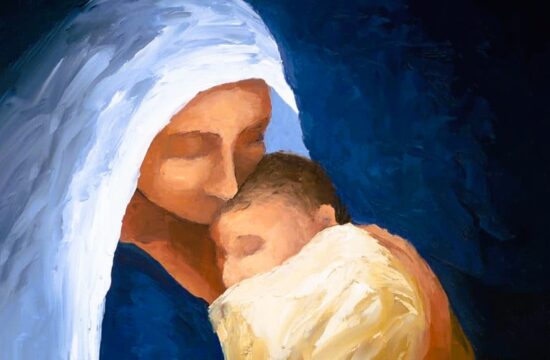Every now and then, a story pops up in the news that’s so bizarre, so head-shakingly ridiculous, it sticks with you. A few years ago, the story of Dennis Libonati became one of those. Here’s a man who’d just finished nearly five months behind bars for assault and battery—finally released, sentenced now to probation and anger management classes instead of further jail time. You’d think, after all that, a person would do anything—anything—to avoid going back. But minutes after being released, before he even left the jail parking lot, Libonati was caught on surveillance cameras trying to steal cars. Not just one, not just two—twenty-six different vehicles, including two sheriff’s cruisers. He went from car to car, yanking handles, even trying to hotwire a few. He didn’t even bother to make up a fancy excuse when the police caught him. “I was just trying to get home,” he said. He was re-arrested, marched right back into the jail he’d just left, this time with a pile of new charges—26 counts of attempted burglary, grand theft auto, parole violation, and more.
Thank you for taking the time to read this homily for the feast of the 28th SUNDAY IN ORDINARY TIME (October 12, 2025). Your support means a great deal to me, and I’m deeply grateful for the many who share these messages with their friends, families and social media followers. If you’ve found meaning in these words, I’d be grateful if you’d share them with others who might benefit.
And for those who prefer listening, you can find the audio version on SoundCloud HERE or subscribe to the podcast on iTunes HERE. Your comments, messages, and the way you’ve embraced these homilies continue to inspire me. Sincerely in Christ -Father Ji
The news headlines were brutal: From the direct and effective “Moron of the Morning” to another “Darwin Olympics: Man Leaves Jail, Immediately Tries to Steal Car.” The story made international news. Why? Because nobody could believe the sheer lack of change. Five months behind bars, and the first thing he did with his freedom was throw it away.
It seems so obvious from the outside. He’s been set free. Why would he go right back? But that’s exactly the same frustration that bubbles up when we hear today’s Gospel about the ten lepers. It’s one of those stories that, if you let it, might get under your skin more than you expect.
Picture these ten people. They’re not criminals. They’re not in trouble for anything they did wrong. But they are, in every sense, imprisoned. Leprosy isn’t just a disease—it’s a living death sentence. It robs you of your body, your place in society, your family, your future. It’s isolating, humiliating, and incurable. In those days, lepers were banished from their communities, forced to live outside the city, cut off from everyone they loved. No hugs, no conversations, just shame and silence. You wore your sickness like a scarlet letter: bells around your neck, torn clothes, an endless warning to others to stay away. Imagine the despair, the loneliness, the feeling of being utterly forgotten.
And then, in the middle of this hopelessness, Jesus enters the scene. The ten lepers have heard the rumors—maybe they’d caught whispers about his healings, or maybe they just saw a crowd and took a chance. They keep their distance, because that’s what the law demands, and they call out, “Jesus, Master! Have pity on us!” Notice what they ask for. Not a cure. Not a miracle. Just pity. They’d given up on hoping for healing. They just wanted someone to notice their pain, to acknowledge their humanity, to feel for them in their misery.
But Jesus doesn’t stop at pity. He doesn’t just feel bad for them or offer words of comfort from a safe distance. He gives them a command: “Go, show yourselves to the priests.” That might sound odd to us, but in those days, the priests were the only ones with the authority to declare someone healed and allow them to rejoin society. Jesus is telling them: act as if you’re already well. Take a step in faith. And as they walk away, they are cleansed—their skin restored, their exile ended, their lives handed back to them.
And it’s right here’s where the story turns frustrating. Out of ten, only one comes back. Only one returns, falls at Jesus’ feet, and pours out his thanks. The other nine? They just keep walking, keep moving back into their old lives, as if nothing had happened. After everything they’d suffered, after this unthinkable gift, they don’t even turn around. You want to grab them by the shoulders and shout, “How could you forget? How could you not come back?”
Why? Why do people do that? Why do any of us do that?
Maybe they were in shock, still half-convinced the healing wouldn’t last. Maybe they’d spent so many years defined by their sickness that the idea of being whole – being well – felt too fragile to trust. Maybe they were angry—angry about all the lost time, the friendships that didn’t survive, the life that slipped away. Maybe they were just so eager to get back to “normal” that they couldn’t spare a thought for gratitude. Or maybe, deep down, they thought they were owed this healing. Maybe they’d started to believe that after everything they’d suffered, being made well was the least God could do for them.
We can shake our heads at them, but if we’re honest, their story feels uncomfortably close to home. I know there have been moments in my own life—times when I was desperate, when I cried out to God for help, for healing, for mercy. And there have absolutely been times when those prayers were answered. More times than I can ever beging to recount – where the storms passed, the guilt was forgiven, the wound began to heal. And what did I do? Honestly, sometimes, I moved on. I rationalized. I told myself it was luck, or coincidence, or just the way things go. Or I let fear and doubt creep in and steal my gratitude. Or I simply forgot. I was so caught up in myself, so focused on the next problem, that I didn’t stop to say thank you. I didn’t let the miracle change me.
That’s what makes this Gospel so hard. Because it’s not just a story about lepers who forgot their manners. It’s a mirror. It shows us the places where we, too, have been set free—and then wandered back into old patterns, old worries, old prisons. It’s that old truth: what frustrates us in others is often what we struggle with ourselves.
But the good news is, Jesus isn’t standing there shaking his head in disappointment. He’s not trying to shame us or make us feel small. The point of the miracle isn’t to embarrass anyone—it’s to invite us to something deeper. When Jesus heals, when he forgives, when he answers our prayers, he’s not just solving our problems. He’s inviting us to be changed. To realize, “I’m not who I was.” To let that truth sink in so deeply that we never want to go back.
This isn’t just a New Testament idea, either. The first reading, from Second Kings, gives us a powerful example in Naaman, the Syrian general. Naaman was a powerful man, a conqueror, someone who had taken everything he wanted from others—including the young Jewish girl he made his servant. But when he’s struck with leprosy, all his power means nothing. Desperate, he listens to that same servant girl, who lovingly responds to her captivity not in anger or resentment, but faith and compassion as she tells him about the prophet Elisha in Israel. He travels, with all his wealth and prestige, to the enemy’s land, hoping for a dramatic cure. Instead, Elisha doesn’t even come out to see him. He just sends word: go wash in the Jordan River seven times.
Naaman is furious—he expected a show, some elaborate ritual, not a simple bath. But his servants talk him down, and he finally obeys. And when he does, he’s healed. And here’s the transformation: he doesn’t just thank Elisha. He doesn’t just offer gifts. He asks for two mule-loads of earth to take home. Why? Because in the ancient world, you worshipped gods on their own soil. Naaman wants to bring a piece of Israel back to Syria, to worship the God who changed his life. He’s not the same man who arrived, proud and self-sufficient. He’s been humbled, healed, transformed. He never wants to go back to who he was.
As a priest, I’ve made a promise to pray every day. And I’ll be honest—there have been times when that promise felt like a box to check, another duty, something I did even when my heart wasn’t really in it. There have been days, weeks, maybe even longer, when I was distracted, discouraged, or just going through the motions. Sometimes, my prayer felt stale. Sometimes, I was so focused on what I needed, or what wasn’t going right, that I forgot to look for the blessings, the miracles, the evidence of God’s love right in front of me.
What changed everything for me was making thanksgiving—not just a quick “thank you,” but a practice—a central part of my prayer. Every morning, before I start listing my problems or requests, I try to name three things I’m grateful for. Some days, it’s easy. Some days, it feels impossible. I’ll sit there, wrestling with my own stubbornness, my own worries. But that practice, day after day, has changed me more than any dramatic miracle ever could. It opens my eyes to the ways God has been at work, even when I didn’t see it at the time. It reminds me that the goal of prayer isn’t to change God’s mind—it’s to change my heart.
That’s what worship means. That’s what “Eucharist” means—thanksgiving. Every time we gather at this altar, we’re invited to bring not just our needs and our wounds, but our gratitude. We offer up bread and wine—simple, ordinary gifts—and God transforms them into the body and blood of Christ. And as we receive that gift, we’re invited to be transformed, too. To recognize that in Jesus, we’ve been given everything. Freedom. Healing. A new identity. We’re not who we were.
This is why we have the prayers of the faithful right before the offertory—so we can bring all our prayers, our hopes, our burdens, and lay them on the altar. But it doesn’t stop there. The real invitation is to bring our whole selves—our gifts, our joys, our lives—and let them be changed. To recognize that every breath, every blessing, every moment is a gift from God. And to let that gratitude shape the way we live, the way we love, the way we move through the world.
We can choose to be like the man who walked out of jail only to end up right back where he started. We can let fear or anger or old habits drag us back into captivity. Or we can be like the one leper—the one who turned around, who let his healing change everything, who came back to give glory to God. We can be like Naaman, whose life was forever changed by an encounter with God’s mercy.
Listen—whatever you’re carrying today, whatever wounds or worries or hopes have brought you here—know this: God sees you. Not just your problems, not just your pain, but you. He offers you more than pity. He offers you healing, freedom, transformation. He invites you to say, “I’m not who I was”—and to let that truth lead you into a life of gratitude, joy, and fearless faith.
Let’s not squander the miracles we’ve received. Let’s not slip back into old ways, old fears, old prisons. Let’s choose to be people of thanksgiving. Let’s offer everything—our hearts, our lives, our worship—back to the God who has given us everything. And let’s never, ever stop saying thank you.











